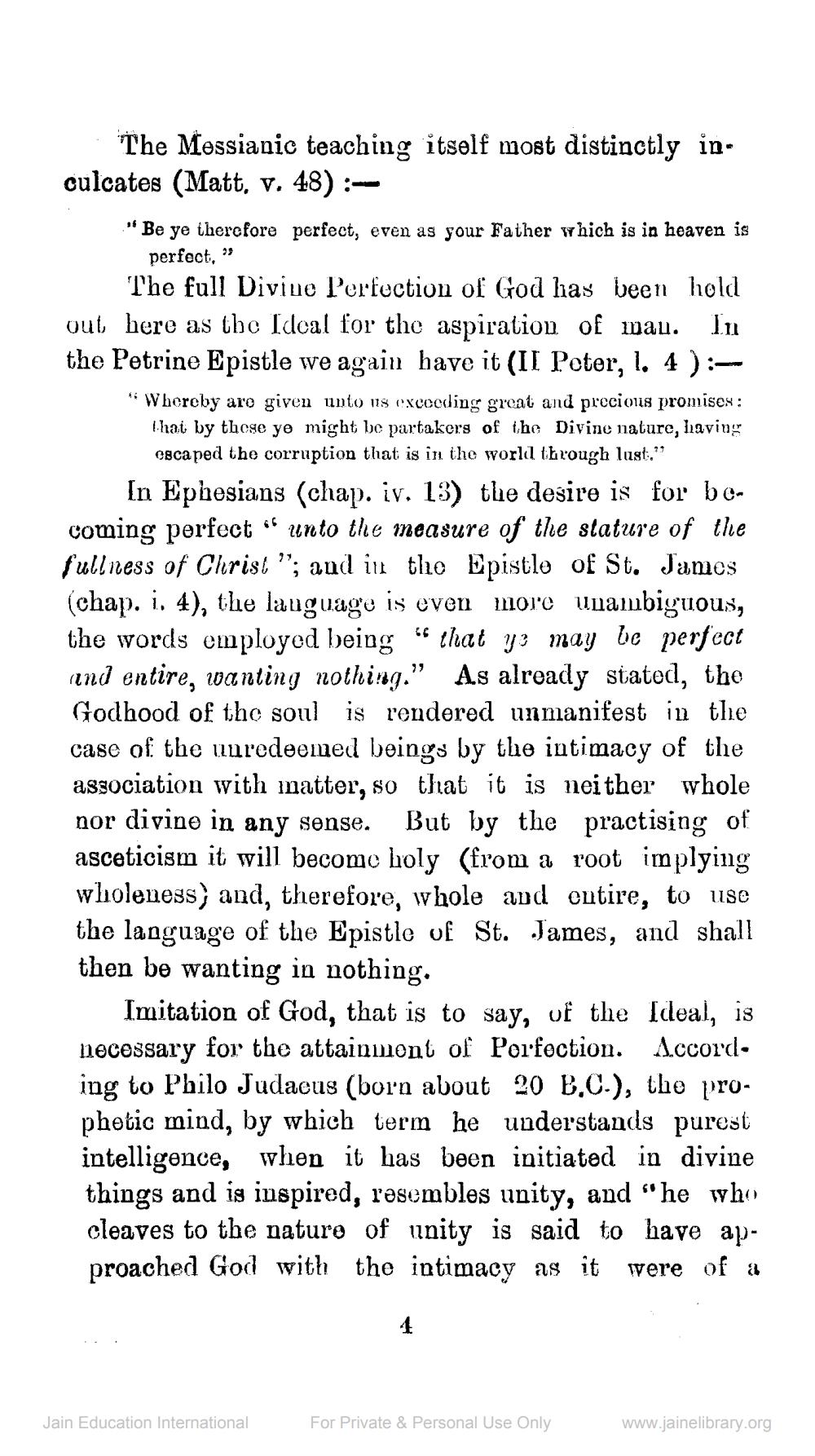________________
The Messianic teaching itself most distinctly inculcates (Matt. v. 48) :—
"Be ye therefore perfect, even as your Father which is in heaven is perfect, "
The full Divine Perfection of God has been hold out here as the Ideal for the aspiration of man. In the Petrine Epistle we again have it (II Peter, l. 4 ) :
*-w
Whereby are given unto us exceeding great and precious promises: That by these ye might be partakers of the Divine nature, having escaped the corruption that is in the world through lust."
In Ephesians (chap. iv. 13) the desire is for becoming perfect "unto the measure of the stature of the fullness of Christ "; and in the Epistle of St. James (chap. i. 4), the language is even more unambiguous, the words employed being "that ye may be perfect and entire, wanting nothing." As already stated, the Godhood of the soul is rendered unmanifest in the case of the unredeemed beings by the intimacy of the association with matter, so that it is neither whole nor divine in any sense. But by the practising of asceticism it will become holy (from a root implying wholeness) and, therefore, whole and entire, to use the language of the Epistle of St. James, and shall then be wanting in nothing.
Imitation of God, that is to say, of the Ideal, is necessary for the attainment of Perfection. According to Philo Judaeus (born about 20 B.C.), the prophetic mind, by which term he understands purest intelligence, when it has been initiated in divine things and is inspired, resembles unity, and "he who cleaves to the nature of unity is said to have approached God with the intimacy as it were of a
Jain Education International
For Private & Personal Use Only
www.jainelibrary.org




